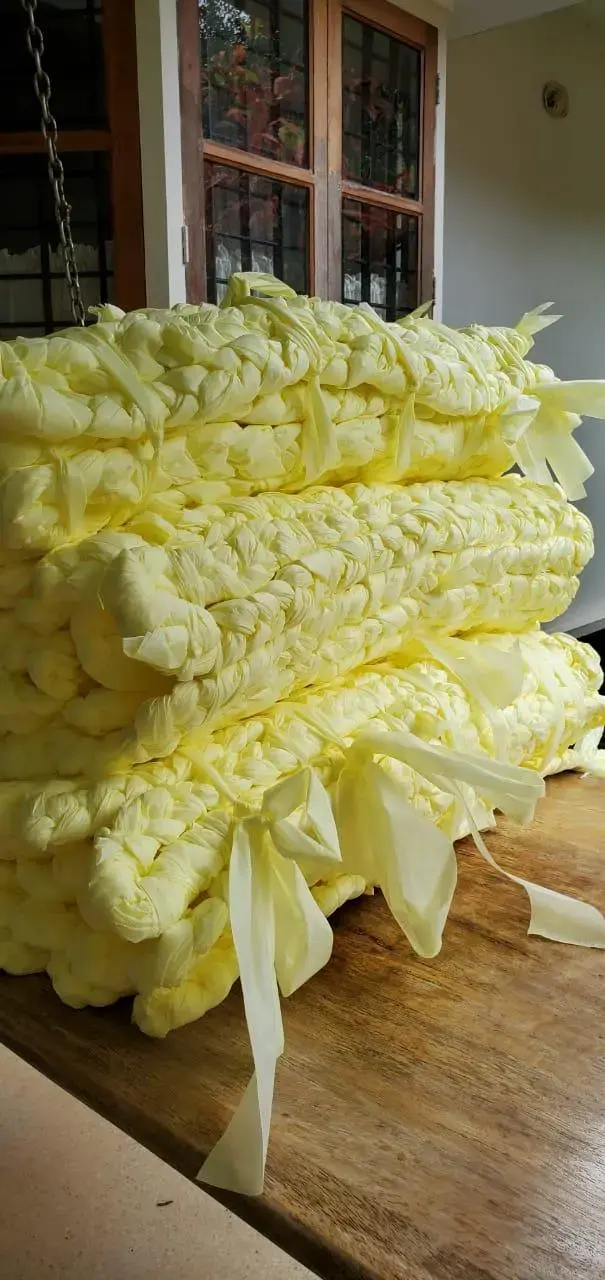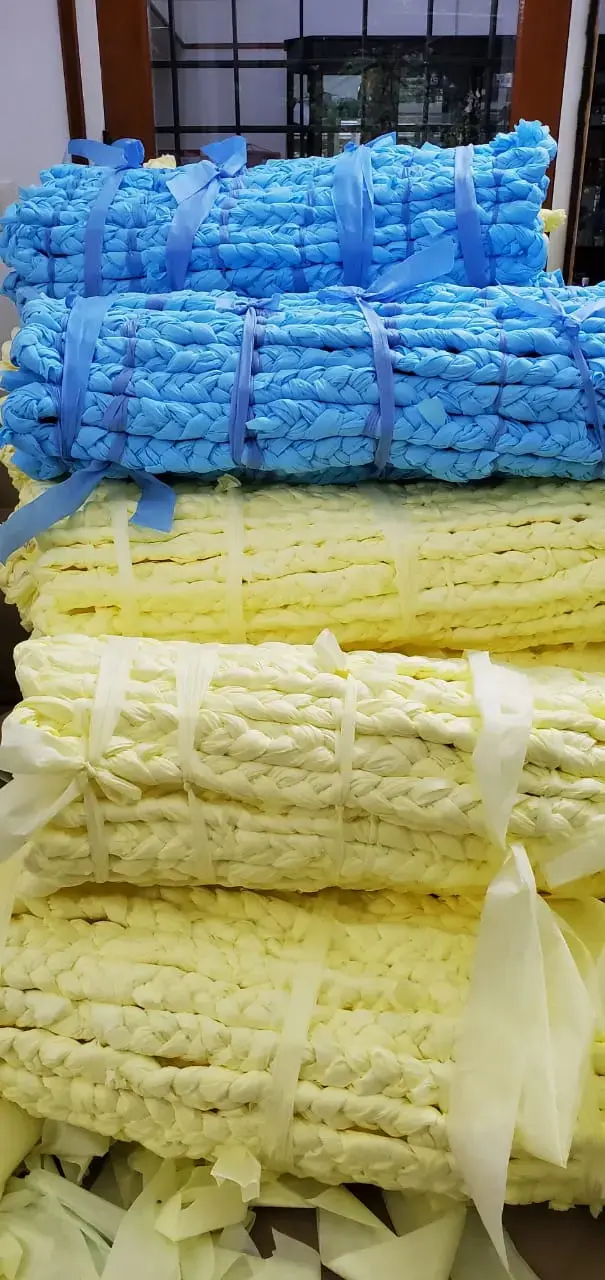An Indian designer is upcycling leftover PPE fabric into hospital mattresses
By Sophie HirshJan. 4 2021, Updated 3:00 p.m. ET
When the coronavirus pandemic hit, many fashion designers changed up their businesses by starting to make cloth face masks. But Indian designer Lakshmi Menon went in a different direction. Instead of making masks, she collected leftover fabric scraps from those making masks, gowns, and other PPE, and used the fabric to make much-needed mattresses for hospitals treating COVID-19 patients.
“As a designer, I always feel that it is my social responsibility to have a new perspective to such problems that we encounter daily, and find a neat solution to such messy problems,” Menon said in a video for The Better India.

Menon was first inspired to use make mattresses when she saw a family — including a baby — sleeping on the road, shortly before India went into lockdown. Soon after, she noticed piles of scrap fabric waste in a friend’s atelier, and she quickly came up with the idea to turn the leftover fabric into affordable mattresses, as per The Guardian.
Using the scrap fabric, Menon came up with a simple braiding design that turns the fabric into soft mattresses — no sewing, thread, machines, or fashion experience required. According to Menon, if you can braid hair, you can make a Shayya (the Sanskrit word for mattress, and what Menon named her creation).
“Braiding allows you to use every single bit of fabric of different sizes. Even the tiniest bit can be incorporated and everyone knows how to tie a plait,” she told The Guardian.
At first, Menon made 20 Shayyas and distributed them to homeless people, but lockdowns soon stalled the project.
Then, in July, she visited another friend’s fashion business, and noticed more fabric scraps — but this time, the scraps were plastic offcuts from the production of PPE, including masks and hospital gowns. Menon immediately noticed that these scraps were “cleaner, softer and more dust-free than fabric scraps. It was the best material I could have wished for.”
The timing was perfect, as hospitals and COVID-19 care centers were facing dire mattress shortages, which meant they had to turn away patients in need. In India, the government requires care centers to burn and destroy each mattress after a coronavirus-infected patient checks out. That said, the Shayyas can easily be sanitized in soapy water and then hung to dry.

So, Menon took the offcuts and got to work making as many Shayyas as possible, and in six months, the project took off. Menon has hired around 20 women to help, selling each Shayya for 300 Rupees, ($4.11 USD), which is cheaper than the mattresses Indian hospitals typically purchase (which cost 700 Rupees, or $9.58 USD). Shayya's profits all go directly to the women who make them.
In addition to the hundreds of orders that come in every day, the group has managed to donate about 700 Shayyas to homeless people, old age homes, and COVID-19 First-Line Treatment Centers (FLTCs) as of December 2020. Menon’s process has even been recognized by the UN as a best practice.
“I hope that this can be replicated in any part of the world during any kind of crisis,” Menon told The Better India.
“I simply hate the word ‘waste,” she added. “I think there is nothing called waste — it is only the way you look at it. My grandmother always says, ‘nature doesn’t know waste.’”

